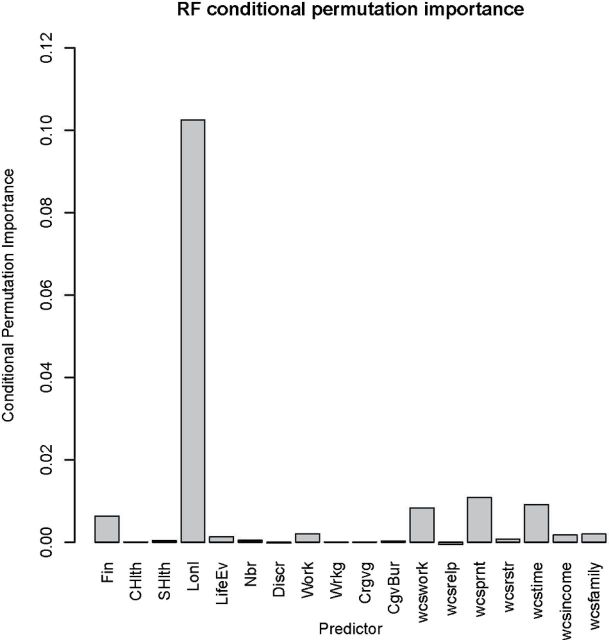Figure 2.
Random forest conditional variable permutation importance results. Outcome variable: Global Perceived Stress as measured by Perceived Stress Scale. Wrkg = work status (0: not working, 1: working), categorical; Care = caregiver status (0: not a caregiver, 1–7: caregiver type), categorical; Fin = financial strain; CHlth = chronic health problems; SHlth = somatic health problems; Lonl = loneliness; LifeEv = life events; Nbr = neighborhood strain; Discr = lifetime discrimination experiences; Work = Knox work strain; CgvBur = caregiver burden. The following predictors are subscales from the Wheaton Chronic Stress Scale (Wheaton, 1997): wcswork = Wheaton Chronic Stress work strain; wcsrelp = Wheaton Chronic Stress relationship problems; wcsprnt = Wheaton Chronic Stress relationship problems subscale; wcsrstr = Wheaton Chronic Stress role restriction; wcstime = Wheaton Chronic Stress time pressure; wcsincome = Wheaton Chronic Stress financial problems; wcsfamily = Wheaton Chronic Stress family role.

